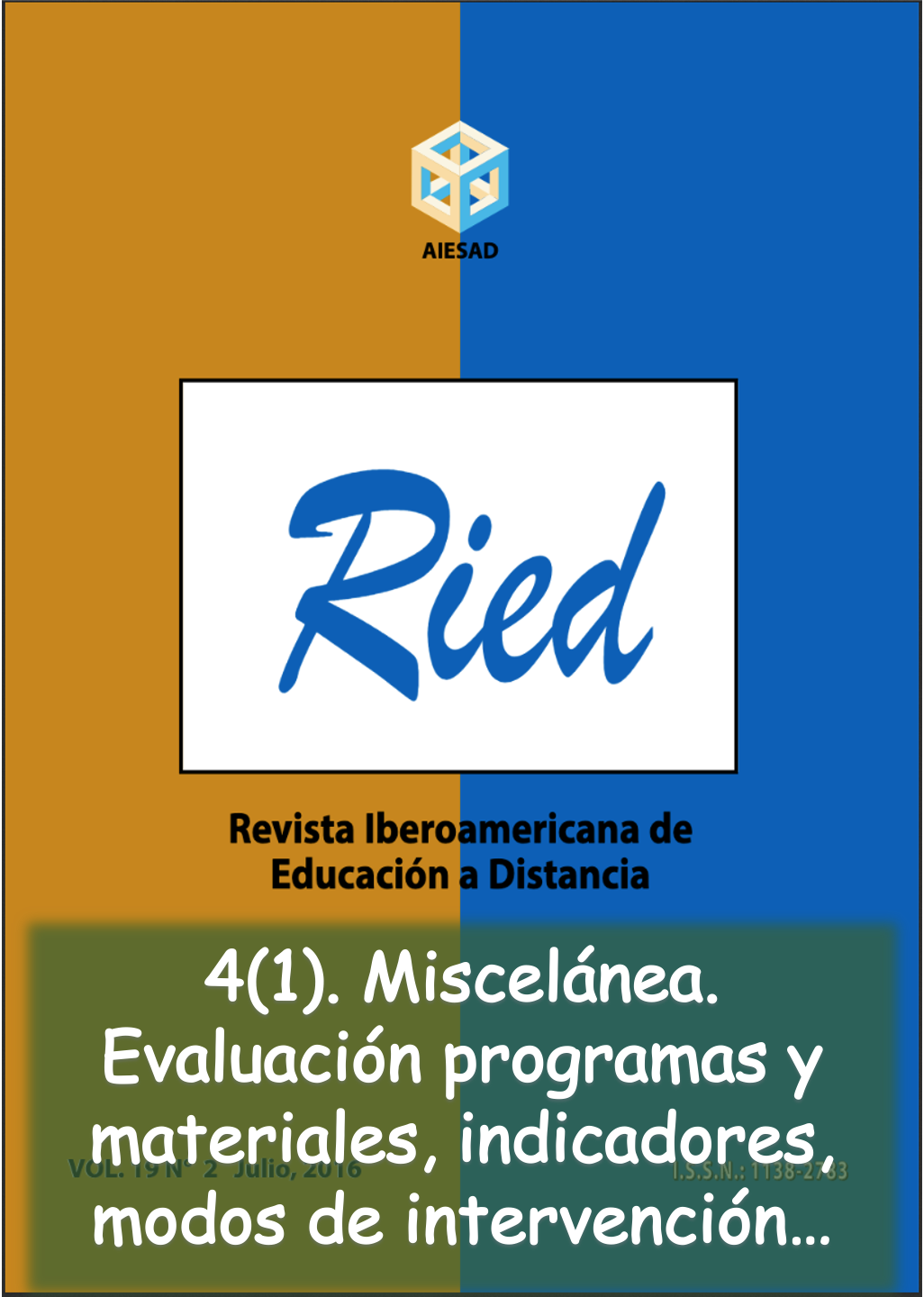VIRTUAL TRAINING MODEL IN UNED. THE DEVELOPMENT OF A COURSE IN THE ECONOMY FACULTY
DOI:
https://doi.org/10.5944/ried.4.1.1195Keywords:
web-based training, WebCT, internetAbstract
The development of Internet in the last years has favored the appearance and consolidation of the techniques of formation at a distance based on surroundings Web. In addition, it has allowed the evolution of learning platforms and computer science applications that allow to eliminate practically the theoretical disadvantages of traditional distance education. This paper analyzes, in the first place, the means of formation basad on ihe Web and the role that Internet is playing in the development of distance education. Secondly, it is centered in one of the learning platforms that is more used by the formation and training centers: the platform WebCT. Later, it is developed a Course of introduction to the accounting and finance using the moré important resources and didactic elements that this software contains.Downloads
Downloads
How to Cite
Issue
Section
License
The articles that are published in this journal are subject to the following terms:
1. The authors grant the exploitation rights of the work accepted for publication to RIED, guarantee to the journal the right to be the first publication of research understaken and permit the journal to distribute the work published under the license indicated in point 2.
2. The articles are published in the electronic edition of the journal under a Creative Commons Attribution 4.0 International (CC BY 4.0) license. You can copy and redistribute the material in any medium or format, adapt, remix, transform, and build upon the material for any purpose, even commercially. You must give appropriate credit, provide a link to the license, and indicate if changes were made. You may do so in any reasonable manner, but not in any way that suggests the licensor endorses you or your use.
3. Conditions for self-archiving. Authors are encouraged to disseminate electronically the OnlineFirst version (assessed version and accepted for publication) of its articles before publication, always with reference to its publication by RIED, favoring its circulation and dissemination earlier and with this a possible increase in its citation and reach among the academic community.









